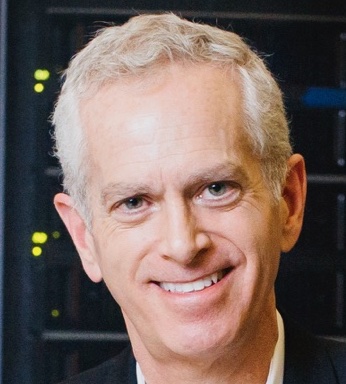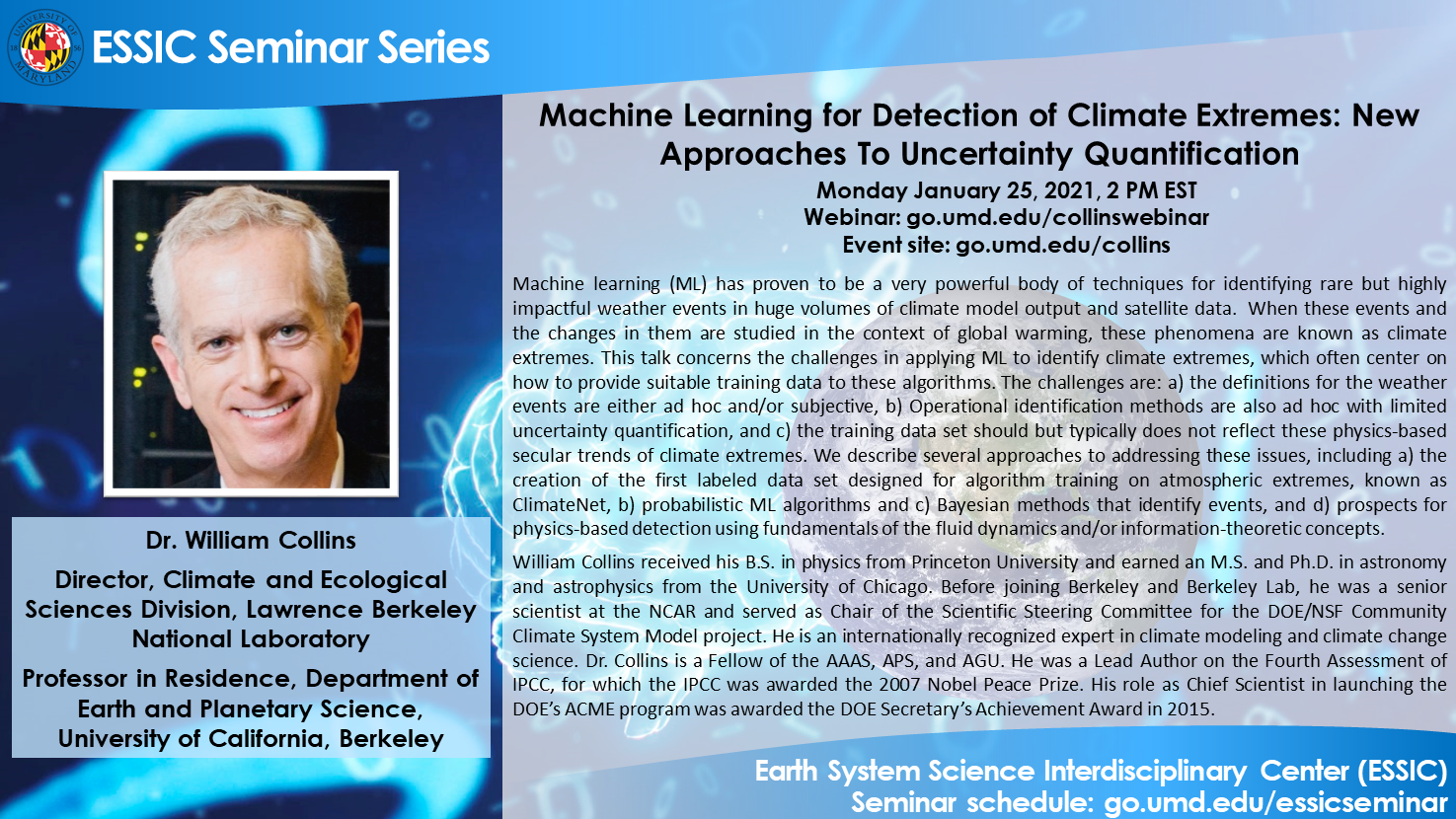
Machine Learning for Detection of Climate Extremes: New Approaches to Uncertainty Quantification
This event has passed. See the seminar recording here:
Dr. William Collins
Director, Climate and Ecological Sciences Division, Lawrence Berkeley National Laboratory
Professor in Residence, Department of Earth and Planetary Science, University of California, Berkeley
Monday, January 25, 2021, 2 PM EST
Abstract:
Machine learning (ML) has proven to be a very powerful body of techniques for identifying rare but highly impactful weather events in huge volumes of climate model output and satellite data. When these events and the changes in them are studied in the context of global warming, these phenomena are known as climate extremes. This talk concerns the challenges in applying ML to identify climate extremes, which often center on how to provide suitable training data to these algorithms. The challenges are:
- In many cases, the official definitions for the weather events in the current climate are either ad hoc and/or subjective, leading to considerable variance in the statistics of these events even in literature concerning the historical record;
- Operational methods for identifying these events are also typically quite ad hoc with very limited quantification of their structural and parametric uncertainties; and
- Both the generative mechanisms and physical properties of these events are both predicted to evolve due to well-understood physics, and hence the training data set should but typically does not reflect these secular trends in the formation and statistical properties of climate extremes.
We describe several approaches to addressing these issues, including:
* The recent creation of the first labeled data set specifically designed for algorithm training on atmospheric extremes, known as ClimateNet;
* Probabilistic ML algorithms that identify events based on the level of agreement across an ensemble of operational methods;
* Bayesian methods for that identify events based on the level of agreement across an ensemble of human expert-generated labels; and
* The prospects for physics-based detection using fundamental properties of the fluid dynamics (i.e., conserved variables and Lyapunov exponents) and/or information-theoretic concepts.
Bio-sketch:
William Collins is an internationally recognized expert in climate modeling and climate change science. His personal research concerns the interactions among greenhouse gases and aerosols, the coupled climate system, and global environmental change.
Dr. Collins’s is a Fellow of the American Association for the Advancement of Science (AAAS), the American Physical Society (APS), and the American Geophysical Union (AGU). He was awarded the AGU’s Tyndall History of Global Environmental Change Lectureship in 2019. He was a Lead Author on the Fourth Assessment of the Intergovernmental Panel on Climate Change (IPCC), for which the IPCC was awarded the 2007 Nobel Peace Prize, and has and will serve as Lead Author and Coordinating Lead Author on the Fifth and upcoming Sixth Assessments. His role as Chief Scientist in launching the Department of Energy’s Accelerated Climate Model for Energy (ACME) program was awarded the U.S. Department of Energy Secretary’s Achievement Award on May 7, 2015.
Before joining Berkeley and Berkeley Lab, Dr. Collins was a senior scientist at the National Center for Atmospheric Research (NCAR) and served as Chair of the Scientific Steering Committee for the DOE/NSF Community Climate System Model project.
Dr. Collins received his undergraduate degree in physics from Princeton University and earned an M.S. and Ph.D. in astronomy and astrophysics from the University of Chicago.
Webinar info:
Webinar thread: https://go.umd.edu/collinswebinar
Event site: https://go.umd.edu/collins
Webinar number: 120 253 1979
Webinar password: essic
To join the audio conference only:
US Toll: +1-415-655-0002
Global call-in numbers
For IT assistance:
Cazzy Medley: cazzy@umd.edu
Travis Swaim: tswaim1@umd.edu
Resources:
Seminar schedule & archive: https://go.umd.edu/essicseminar
Seminar Google calendar: https://go.umd.edu/essicseminarcalendar
Seminar recordings on Youtube: https://www.youtube.com/user/ESSICUMD

